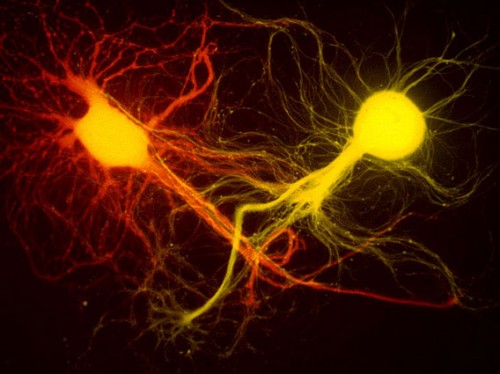…the fundamentalist mind, running in a single rut for fifty years, is now quite unable to comprehend dissent from its basic superstitions, or to grant any common honesty, or even any decency, to those who reject them.
HL Mencken
Neurons that fire together, wire together was a line I remember from the movie I saw recently.
You become good at thinking what you think. You become good at doing what you do.
The first time you think something. it is as if you roll a wheel across level ground. The twentith time you think it, it has gotten easier as if a rut has been worn into the ground of perception guiding the wheel on its way.
If we care about truth, then we will naturally want to percieve reality accurately because accurate perception is true perception. Thus the Buddhists tell us that we cannot see a thing clearly unless we are indifferent to that which we see.
So, where are we then when we take up a cause? Before we took it up, we were indifferent to it. At the time we took it up, our previous indifference allowed us to see it clearly and accurately and thus to make a good judgement about it.

But now, having seen it, we’ve engaged with it. It begins to be central to us. The more we work on it, the more important it begins to seem. What was once hidden has now been revealed and we see it easily where once we saw it not at all.
If we think the thoughts of an environmentalist, we fire the neurons of environmentalist thought. If we fire them, we wire them and what was before a level field of perception now begins to acquire the ruts of long use – the ease of habit – the current thoughts being guided by the ruts of the thoughts that went before.
Where once, from the clarity of indifference, we saw a significant pattern and decided to engage it, now from the habit of long practice, we can’t help but see the pattern everywhere and the more we see it, the more significant it seems to be and the more we feel called to engage it.
Where then lies truth?
This is the idea behind the Power Of Context – that an idea (a cause) is more effective if it is relevant and topical because people are more responsive to conscious perception of an idea.
That’s why I make a point of blaming civilization for most of our ills; bringing out the idea of civilization not being a natural or even inevitable fact of humanity – but an aberration from which we need to escape. That’s some ball to get rolling though :-/
Keith,
I agree that the Power of Context idea is a close fit and overlaps a lot with what I was writing about. But I would also say it is not an exact fit.
People do pay more attention to things and events that are close to them in time and space and they tend to value less what is farther away. We also tend, in general, to be more open to the opinions of someone in our group who shares many of our beliefs than to someone outside our group with a different orientation.
Also, in Computer Science, we use the idea of Locality of Reference which bears some similarity to what we’re discussing here as well.
According to the Locality of Reference idea, a computer algorithm that tends to focus its next search in the general area where its last search succeeded will tend to be more efficient by decreasing the search time required.
I suspect that biological cognitive processes may use something similar in their efforts to conserve cognitive energy. After all, the quicker the animal mind can process the mundane, the more generalize processing power is left to watch for threats to its survival.
And all of what I’ve just talked about can tend to use the ‘neurons that fire together, wire together’ principle I was talking about. But I think this tendency would probably be a minor rather than major contribution. After all, the Power of Context and Locality of Reference methods of increasing efficiency also need to remain flexible because contexts and localities do shift and we must be able to follow these shifts or our adaptation becomes dysfunctional.
I’m talking more about things that would be characterized as having a large element of frequent repetition that causes neural rewiring (neurons that fire together, wire together). Such rewiring is a direct reflection of what we spend our cognitive time doing. If we are shifting about doing many things, then any additional wiring that results would reflect this. But, if you are an avid tennis player, or a deeply committed environmentalist or a mathematician, then you are likely to lay down a lot of wiring to support these activities. And, I might add, this is again reflective of the idea that the more quickly and efficiently we can process the things we spend a lot of time doing, the better we get at them and the more of our generalized processing power we free up for threat evaluation.
But, and this is the central point I was trying to make in my piece, these additional connections can and do become like ruts in a road and they tend to make our thoughts and perceptions more easily take the paths well paved. So as we become better at something, we are also adding a distortion in that we can no longer see that ‘something’ with balance and dispassion because in some sense, we’ve become the thing.
I don’t see any way around this tendency for repetition to create a bit of obsession. But, being aware that we have such a tendency can make us just a bit more cautious about our mental processes and, on balance, I think that’s a good thing.
Dennis